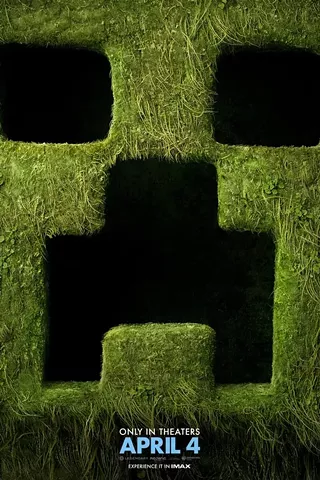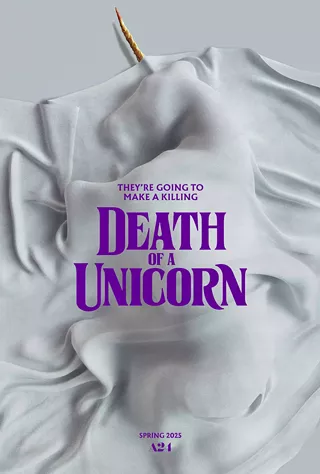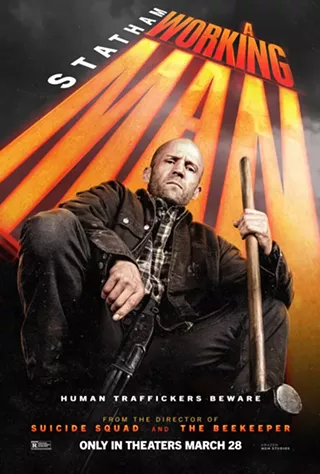Of course, those films are about as close to art films as the average presidential address is to the truth.
Nonetheless, every now and then, a major American filmmaker will slip an aesthetic fastball over home plate. Gus Van Sant, who paid his dues by putting out feel-good pap like Finding Forrester's Mid-Level Commercial Success and Good Will Hunting for an Oscar, has also made a few true art movies, like the experimental-art-piece-mistaken-for-a-thriller Psycho and his Shakespearean lovefest My Own Private Idaho.
Recently, though, Van Sant has fully taken the plunge into film as art, releasing last year's beautiful Gerry and this year's even better Elephant. Both films are based on actual events: Gerry on the story of two guys who got lost in the desert, and Elephant on the story of two guys who brought automatic weapons to school and killed everybody they could.
While clearly about the Columbine killings, what really separates Elephant from the pack is its refusal to offer an explanation for the actions of the killers. There's no psychology or even clear motivation for their actions. If this were about the Sept. 11 hijackers, the lack of psychological explanation would be considered appropriate: We're not allowed to ask why they did it; they're evil; evil is what they do. In fact, a film about Mohammed Atta that tried to make his actions seem understandable would be met with sharp criticism. Remember what happened to the scholars who responded to Sept. 11 by talking about it as an effect of U.S.-Middle Eastern policies?
But white kids? There must be a reason! It's morally reprehensible to present a film that doesn't diminish the horror of the situation by explaining their fucked-up childhoods and the damaging effects of violent media!
Instead of focusing on the psychology of the killers, Van Sant very carefully weaves a picture of the empty, uncomfortable, amusing and ordinary moments in the day of a bunch of high school kids. It's as though he trusts enough in the intelligence of his audience to let them come to their own conclusions. Given contemporary standards, I guess that that's not a very patriotic thing to do, but it is a beautiful and interesting thing to do.
Van Sant emphasizes the meaninglessness of not only the killings, but much of what goes on in the high school, through long, still shots of the sky that give the film an intense feeling of space. Even better are his amazing tracking shots, one lasting nearly 10 minutes. Together, these techniques are the antithesis of the modern fast-cutting style that's so ubiquitous in well-financed films.
Eschewing that style gives Van Sant's movie a much more natural feel, as though we're watching real events. It also creates a tension that's not possible in a rapidly edited film. The shots hold on so long that they become uncomfortable, and make the killings, which come late in the film, almost a relief.
Plus, the tracking shots are so well choreographed as to be breathtaking. It's not simply the expertise of cinematographer Harris Savides that makes this work. Van Sant combines Savides' mastery of the camera with a hyper-natural acting style, a cast of unknowns and enchantingly quotidian dialogue that gives the film a voyeuristic quality.
Ultimately, that points to the goal of leaving the observer in charge of the meaning. Van Sant pushes this home by repeating one scene three times from three different perspectives, as though simply piling on data for the viewer to interpret. Thus his title, which is meant to invoke the story of the five blind men trying to describe an elephant.
Within the story, Van Sant (who also wrote the film) brings this multiplicity to bear by creating a sort of Revenge of the Nerds as it should have been. The "evil" jock kids do nasty things, but then turn around and have tender moments. A nebbishy girl is picked on and seems undisturbed by it. A boy has to drive around his alcoholic father, and then quietly accepts punishment for being late. In a manner that is probably more true of high school kids and people in general than most films or novels would attest to, the characters in Elephant have no strong moral continuity. Rather, they're complex enough to be open to any number of interpretations, even to the possibility that they're not anything like what literature and film teach us characters should be.
The extreme emptiness then almost becomes an explanation. The nihilism of life in the generic high school could lead in any direction, so why not violence? Why not anything? Or nothing at all?
I doubt a movie about lack and openness, a movie that asks a lot of the viewer, could ever succeed at the American box office. But Van Sant clearly didn't make Elephant in order to win statues of bald men and stacks of cash. Since he was good enough to pass up the multimillion-dollar payday of making Good Will Hunting II: The Afflecktion, please reward him with a few measly dollars, and go see what may well be the best film of the year.










